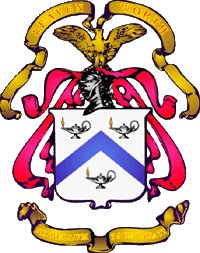In this era of persistent conflict no other profession has been so called upon to sacrifice so much in the sake of our nation and other nations than that of the profession of arms. From the hills of Afghanistan to the jungles of the Philippines to the sands of Iraq, the men and women in uniform have answered the call to meet threats as they arise against the US and her allies. Membership in the profession of arms to me, however, is more than just serving in the armed forces. In the complex environments which we find ourselves in, to be a member of the profession of arms means that I am a professional warrior, a consummate patriot and citizen, and a leader to all that I serve. For it is only by living these responsibilities each can I begin to answer the burden my country has placed upon me.
Of all the tasks levied by my country on me as a member of the profession of arms, the greatest of these is that of professional warrior. By being a professional warrior means that fighting and winning my nation’s wars is at the forefront of my training, learning, and teaching. I must be ready to fight at a moment’s notice and that in my thinking stands the old adage, “The first day of the next war could be today.” This does not mean that I go looking for fights, but rather hope for peace always, resorting to violence as a last resort. This also means that I am not only scholarly and knowledgeable in my job, but that I seek out information and to learn from all resources at my disposal. Next to my bed you might find Caesar’s Gallic Wars or Fall’s Street without Joy, but you will also find me reading Wired magazine to find the latest technologies--- all striving to learn more and be a better and relevant warrior. In addition to learning I share and teach subordinates, peers, and superiors alike in an effort to make the profession of arms a better organization for the future.
Next to being a professional warrior, serving as a consummate patriot and citizen is essential to what I think being a member of the profession of arms is today. Being a consummate patriot and citizen goes beyond waving a flag on the 4th of July or standing up for the Star Spangled Banner, it is an attitude of how you live every day. To be a patriot means that I, as a member of the Armed Forces, answer my nation’s calling whenever and wherever that might be. I do not grumble or talk badly about my leaders and their decisions; I stand behind them and execute the orders of the leaders appointed over me as well as support and defend the Constitution. As a member of the profession of arms, how one represents their country out of uniform is just as important as when one has it on. As mentioned previously, being a patriot and citizen is an attitude that transcends just flag waving. It may seem intangible, but to be a patriot and citizen means that I will walk with my head held high for I eagerly support my fellow citizens, and help my community, and support the democratic processes that keep my country free like voting and authorized civil disobedience. Only by demonstrating these constitutionally declared rights do I portray my citizenship and patriotism out of uniform. It is by these portrayals of patriotism and citizenship that I can truly say that I am a member of the profession of arms.
Along with patriotism and being a warrior the third piece of what the profession of arms means to me is that I am a leader. In very few professions is leadership so critical to the execution of duties than in the profession of arms. While I may only command once, I will always be a leader to someone and I must remember that throughout the course of my career. By being a leader in the profession of arms I acknowledge and understand that I must lead both peers and subordinates through my example under any conditions, and not spare myself from fatigue and privation. Along with leading by example, I must also train my subordinates to be leaders in my absence through my own examples and teachings. Critical to this leadership is the principle of mutual respect: treating all my subordinates with equality and dignity regardless of their age, race, creed, or gender. Once again however, leadership is not only defined by how I am in uniform. By being a leader of the profession of arms I also demonstrate in my private life a mutual respect for those around me not in uniform, treating them with the same level of mutual respect I have for those in uniform, and letting them see how a member of the profession of arms treats non-members of the profession.
In these tumultuous times the profession of arms in this country continues to be one of the most respected and appreciated careers of our nation. The idea of “Citizen-Soldier” continues to be a fundamental analogy to what being a member of the profession of arms means to me. For to be a member of this occupation I know I must be a true professional warrior, a consummate patriot and citizen, as well as a leader to all. To be anything less than these qualities as a member of this noble profession would be unfair and unacceptable to the people of this great nation which I have sworn my life to defend.
MAJ David Acosta
Student, Command and General Staff School
U.S. Army Combined Arms Center
Fort Belvoir, VA
Student, Command and General Staff School
U.S. Army Combined Arms Center
Fort Belvoir, VA

